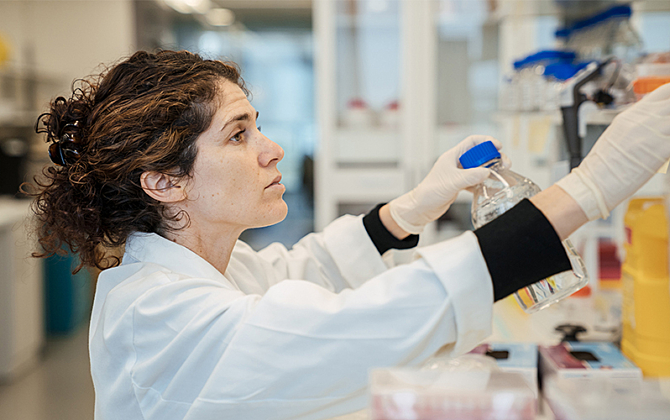Approximately 2,750 people in Australia are living with this disease at any time. The condition most commonly affects people in their mid-to-late-50s and early 60s, and survival is typically two-five years from the onset of symptoms. Two medications are currently approved in Australia that can slow the progression of the disease by three-six months, but there is currently no cure.
The effects of MND vary greatly between individuals. For some, the disease begins subtly with cramping or weakness in the hands and feet, while others may first notice difficulty gripping objects or frequent stumbling. As MND progresses, the muscles of the throat and tongue may also be affected, leading to slurred speech and trouble swallowing. Over time, the condition often results in widespread muscle weakness and wasting, severely impacting mobility and independence.
Our research approaches
The precise cause of MND remains a mystery, but current research suggests it involves a complex interplay of genetics, environmental factors, and neurological changes. At NeuRA, our goal is to better understand why the motor neurons die and how to slow or prevent this process. We study patients with MND using innovative neurophysiological techniques and conduct clinical trials to test novel treatments that could change the course of the disease.
One exciting area of investigation focuses on cortical and nerve excitability — examining how electrical signals travel between the brain and nerves, and why this communication fails in MND and related disorders. By deepening our understanding of neurological physiology, we aim to develop new therapeutic strategies that improve the lives of people living with MND.
Our research is closely integrated with local clinical services, particularly at the Prince of Wales Hospital and the broader Randwick health and university precinct. We also contribute to the Australian MND Registry (MiNDAUS), lead the national MND clinical trials network (ALLSTAR), and work alongside patient advocacy groups and international research partners. Members of our team are regularly invited to global MND research roundtables and serve as advisors for the development of national MND treatment guidelines.
Our research discoveries
NeuRA’s research is driving important advances in the field. Our scientists have identified several promising therapeutic targets and we are the Australian sponsor and lead site on an innovative platform trial that uses a ‘precision medicine’ approach to deliver targeted treatments. This year alone, we have contributed to seven clinical trials, allowing nearly half of our patients to participate in the development of new therapies.
We have also launched the Asia-Pacific MND Imaging Initiative (AMII), which has established a growing repository of over 900 brain scans to support discovery in diagnosis and disease mechanisms. In addition, we have identified novel neurophysiological biomarkers, which are now being integrated into projects using artificial intelligence to improve patient outcomes and accelerate the search for effective treatments.


